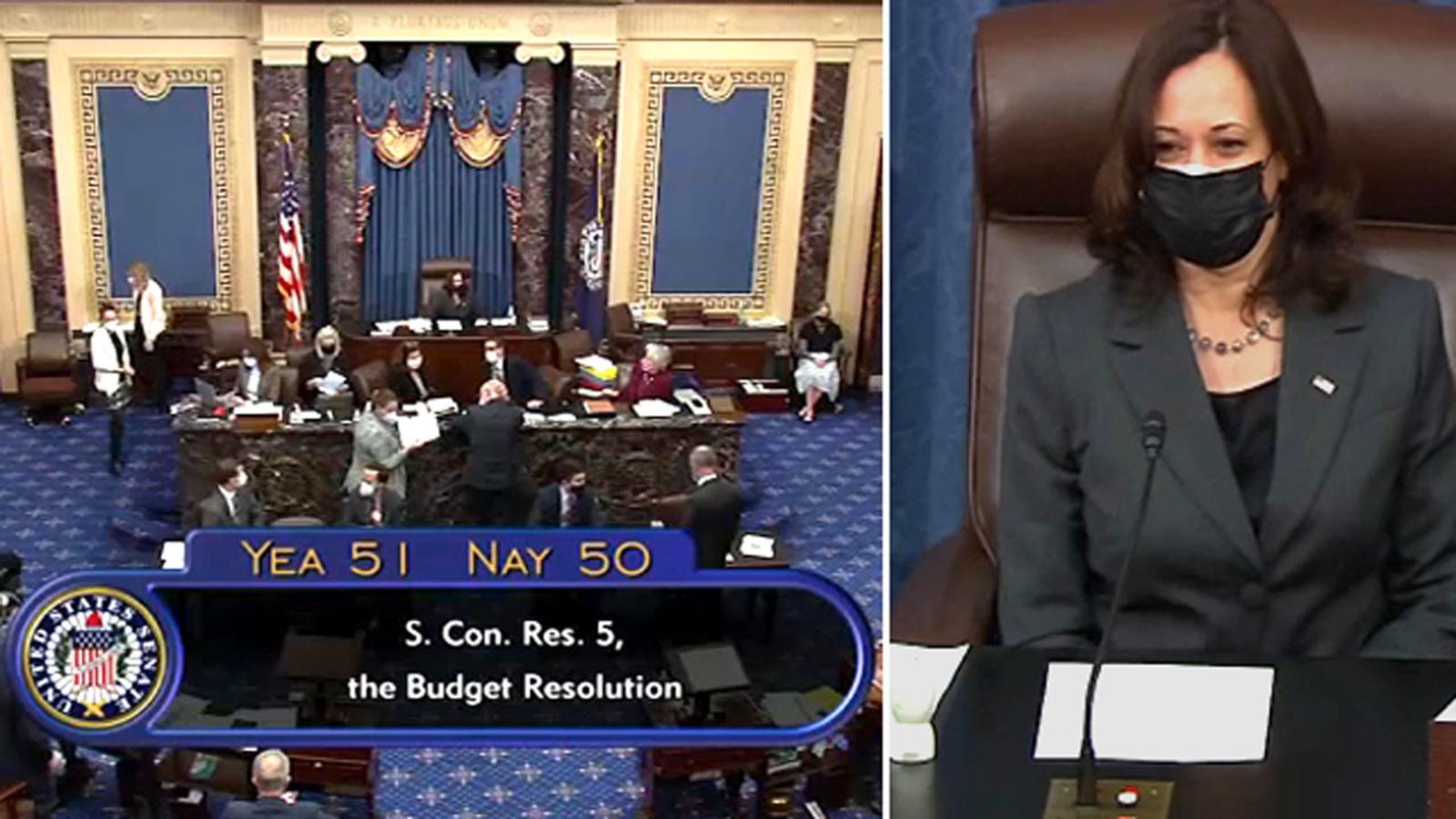Despite frequent and often repeated calls for national unity moving forward, none was to be found in the U.S. Senate on Thursday night as Senators split 50-50 over a budget resolution for President Biden’s $1.9 trillion Covid-19 relief bill. Vice President Harris was present to break the tie, giving Democrats passage of the resolution in a 51-50 vote, with all Republicans voting against. Even with days of negotiations between top Republicans and President Biden, little progress was made in terms of compromise between Biden’s preferred nearly $2 trillion package, and a scaled-down option from the GOP.
Thursday night’s budget resolution will pave the way for more partisan division in the coming weeks as it’s likely Biden’s Covid-19 relief bill could be passed using the reconciliation method which requires only a simple majority vote:
Typically, most bills require 60 votes to advance in the Senate, but budget bills only require 51. By using budget reconciliation to pass Covid-19 relief, Democrats would be able to move everything from $1,400 stimulus checks to enhanced weekly unemployment insurance payments single-handedly, even if Republicans don’t sign on.
Although there’s still the possibility of a bipartisan deal on Covid-19 aid, Democrats have gone ahead and initiated the reconciliation process, since it’s possible GOP lawmakers stand firm and refuse to back an ambitious package.
Before Democrats can get to writing this bill, however, both the Senate and the House need to approve a budget resolution, with the vote-a-rama serving as an opportunity for every senator to introduce amendments to this measure. The final resolution — which passed the Senate Friday morning along party lines — effectively serves as an outline for what the final bill could look like.
The Thursday vote was all about getting the House and Senate on roughly the same page moving forward with the understanding that legislation written within the accepted budget resolution framework will be passed by both bodies.
On cue, Republicans have been crying foul in recent days accusing the President and Congressional Democrats of tossing unity aside in favor of legislative victories:
Senate GOP Leader Mitch McConnell, in comments on the Senate floor Wednesday, alleged that President Biden’s staff and Democrats in Congress are preventing the president from making a deal with Republicans on coronavirus relief.
“Yesterday, less than a day after several Senate Republicans spent two hours meeting with President Biden, Senate Democrats plowed ahead with a party-line vote to set the table for a partisan jam,” McConnell said of Democrats’ efforts to set the table for budget reconciliation.
He continued: “The new president talks a lot about unity. But his White House staff and congressional leadership are working with a different playbook… the rushed budget process that will play out this week is exactly the wrong path toward making law.”
It’s not unthinkable for Democrats to push Republicans aside on this measure, there is a base of voters who are expecting movement which does not include any concessions to the GOP. So far, in his first few weeks, President Biden has shown an innate ability to work directly on placating the left-wing base of his party with executive orders at the expense of working toward a more moderate, unifying agenda. There’s no reason to think that legislatively, at least for now, that enacting more of his agenda through Congress would be undertaken in a bipartisan or moderate manner.
However, even as the bill moves through Congress, some Democrats are now expressing worry that the bill may be too big, according to Politico:
Larry Summers, the former Treasury secretary for President Clinton and top economic adviser to President Obama, puts down on paper what many liberal wonks have been whispering about for weeks: that President Biden’s stimulus bill may be too big, that its overall cost could sacrifice other progressive priorities and that it could harm the economy next year, when Democrats will be defending narrow congressional majorities in the midterms.
For weeks the key economic talking point from the White House has been that the risk of going too small is worse than the risk of going too big. Now comes Summers who says … that might not be true. “[M]uch of the policy discussion has not fully reckoned with the magnitude of what is being debated,” he wrote.
Summers’ view would lend credence to a Republican vision of a scaled-down, more targeted relief bill. With a trillion dollars still left on the table from previous Covid stimulus legislation in 2020, some are questioning why the Biden plan remains so large.
No matter what happens, it appears that some form of the legislation will pass, and likely pass with a party-line or near party-line vote and reach near the $2 trillion price tag.
Donate Now to Support Election Central
- Help defend independent journalism
- Directly support this website and our efforts
